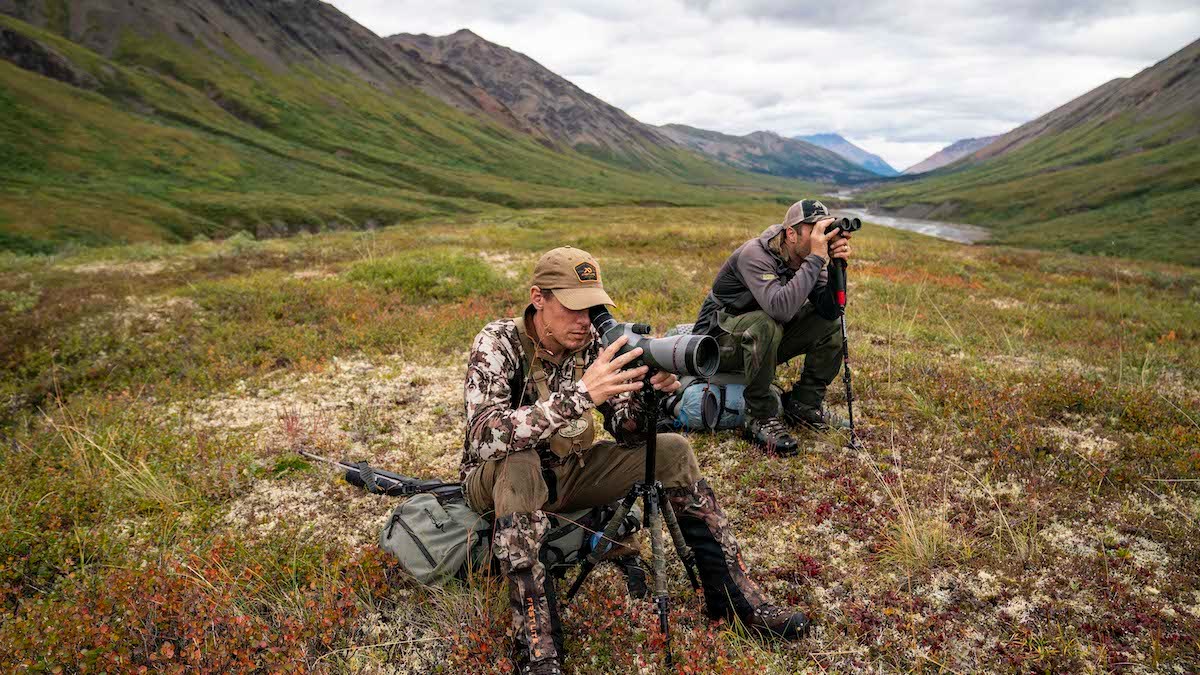Subsistence Board Responds to Alaska Public Land Hunting Closure Proposal

On June 16, the Federal Subsistence Board discussed a contentious proposal that seeks to close nearly 60 million acres of federal public lands to any hunters who are not qualified for subsistence use. After three hours of debate, the board chose to delay their vote and defer any action on the request until next year.
Temporary Wildlife Special Action RequestWSA21-01was brought forth by the Northwest Arctic Subsistence Regional Advisory Council in April in response to growing concerns from locals that the air traffic and hunting pressure from outsiders is delaying and interfering with traditional caribou migrations and subsistence harvest in units 23 and 26A. They also allege that moose populations in the region have dropped below sustainable levels. The council proposed closing caribou and moose hunting during August and September of 2021 to non-federally qualified subsistence users. That includes all out-of-state hunters, as well as many Alaskans who don’t qualify for subsistence hunting based on their location of residence.
You can read our previous in-depth article about this issuehereand listen to our discussion about it on the MeatEater Podcasthere.
The decision to not act on this proposal appears to be an acknowledgement of the exceptionally high degree of interest and scrutiny on the issue. A public forum on April 23 brought a never-before-seen number of participants for such meetings, with 106 people testifying on the proposal, 92 opposed and 14 in favor. The subsistence board received hundreds of written statements as well. Thatboard is comprisedof representatives of U.S. Fish and Wildlife Service, National Park Service, Bureau of Land Management, Bureau of Indian Affairs, the U.S. Forest Service, plus three public members appointed by the secretaries of the Interior and Agriculture, two of whom must represent rural subsistence users.
One of the most frequently cited concerns with the temporary special action request is the lack of scientific evidence to support the conclusion that reduction in air traffic and non-local hunting pressure would restore traditional caribou migration patterns. Many of those opposed believe that climate change and other factors may be at play. In fact, the Office of Subsistence Management reached that conclusion in theirofficial analysisof the proposal:
“While aircraft and non-local hunting activity can affect caribou behavior in the short-term, they have not been shown to have long-term impacts on caribou migration through the Noatak NP,” the OSM analysis states. Land managers have experimented with air traffic restriction in the Noatak River Valley (inside Unit 23) for more than 30 years. “While the factors affecting caribou migration are poorly understood and warrant additional research, the closure of Federal public lands is not currently warranted.”
However, the OSM did recommend following the temporary special action request portion regarding moose.
“There are substantial conservation concerns that threaten the viability of the population. Surveys indicate substantial declines in almost every survey area, and population estimates are below State objectives. Additionally, the harvestable surplus has likely been exceeded. Regulatory changes have been made to reduce moose harvest and promote population recovery in Unit 23 under both Federal and State regulations since 2017. However, moose populations have continued to decline. Approval of this request could aid in the recovery of the Unit 23 moose population by reducing moose harvest by non-Federally qualified users.”
In their June meeting, the board was attentive to this analysis and seemed inclined toward granting the closure of non-qualified moose hunting while delaying a decision on caribou until further study has been completed. Ultimately, however, they decided that such a move would be likely to push hunting pressure elsewhere, causing unforeseen consequences. The deferral of the request pushes any decision into next year, likely coinciding with the season-setting process in May. Non-subsistence hunters will be allowed to hunt moose and caribou within units 23 and 26A as per existing regulations in 2021.
The Alaska Department of Fish and Game has been largely hostile to this attempt by a regional subsistence council to go around the state in regulating big game hunting. The department is already fighting a similar decision in court from last year in Unit 13 and has promised to do the same if this proposal were to pass. The commissioner of Alaska Department of Fish and Game, Doug Vincent-Lang, recently published anop-ed stating his department’s positionin theAnchorage Daily News.
Ben Mulligan, a deputy commissioner of ADFG, testified to that effect in the June subsistence board hearing. He spoke to MeatEater after the conference call.
“I am relieved to know that, at least for this hunting season, the Federal Subsistence Board will not be shutting out non-federally qualified users who have been planning to hunt moose or caribou in this vast area of Alaska,” Mulligan said. “By deferring action in order to provide a more thorough analysis, the fight goes on. ADF&G is prepared to protect the State’s constitutional and statutory obligations to Alaskans and non-Alaskans alike while we do our best to ensure the FSB acts within their current authorities as laid out in ANILCA.”
Shop
Sign In or Create a Free Account
Related

Wildlife Management
Most Americans Just Lost Millions of Acres of Hunting Access

Public Lands & Waters
This Proposal Could Change Hunting in Alaska Forever

